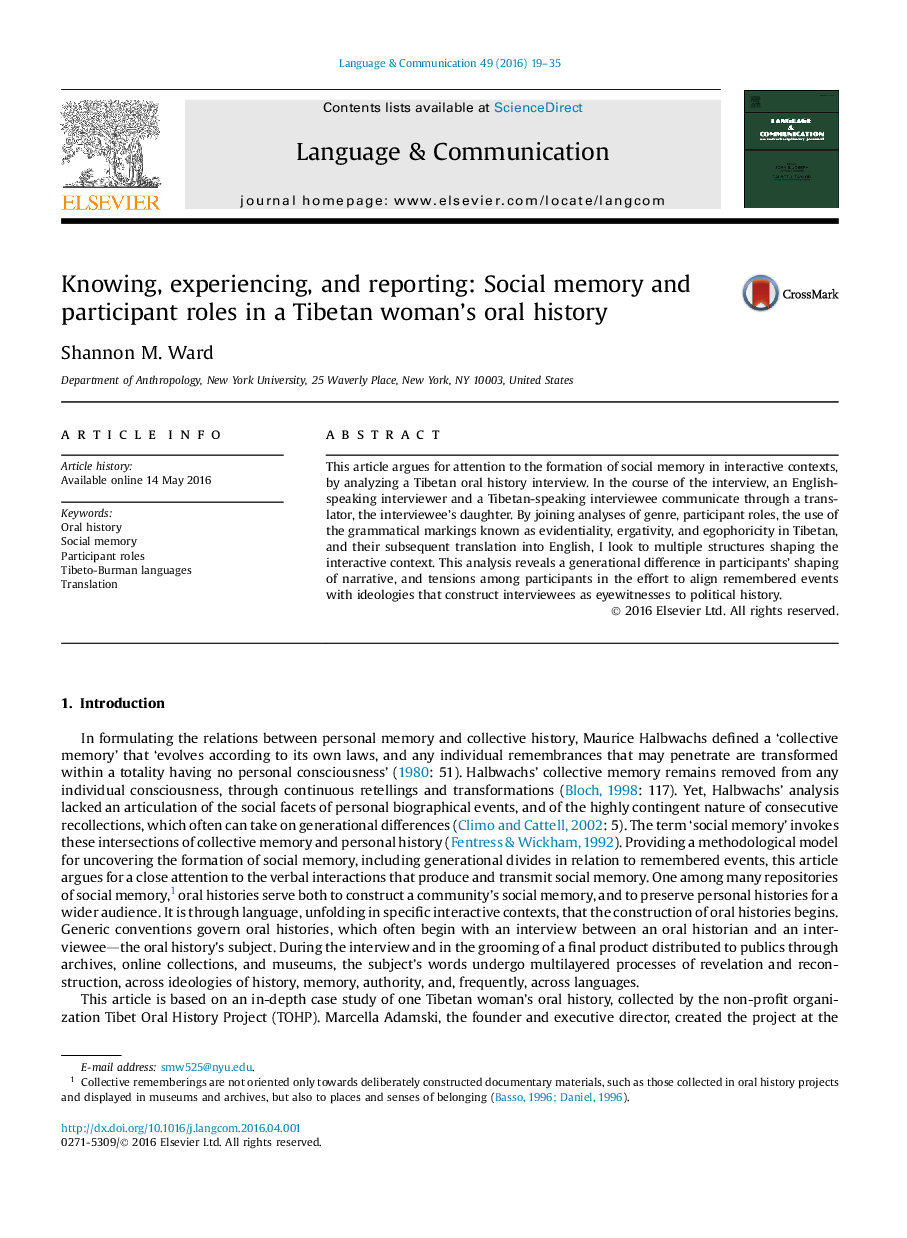| Article ID | Journal | Published Year | Pages | File Type |
|---|---|---|---|---|
| 935132 | Language & Communication | 2016 | 17 Pages |
•Oral history interviews are sites of ideologically-motivated dialogic interaction that formulate and transmit social memory.•The genre of oral history intersects with other Tibetan practices of autobiographical remembering.•In this interview, participant roles mark acts of knowing, experiencing and reporting, and are reframed in translation.
This article argues for attention to the formation of social memory in interactive contexts, by analyzing a Tibetan oral history interview. In the course of the interview, an English-speaking interviewer and a Tibetan-speaking interviewee communicate through a translator, the interviewee's daughter. By joining analyses of genre, participant roles, the use of the grammatical markings known as evidentiality, ergativity, and egophoricity in Tibetan, and their subsequent translation into English, I look to multiple structures shaping the interactive context. This analysis reveals a generational difference in participants' shaping of narrative, and tensions among participants in the effort to align remembered events with ideologies that construct interviewees as eyewitnesses to political history.
